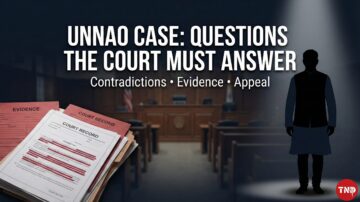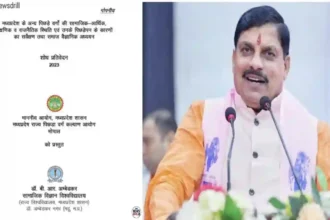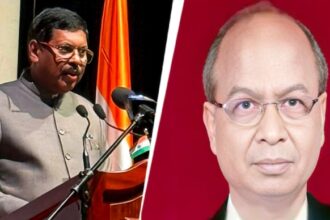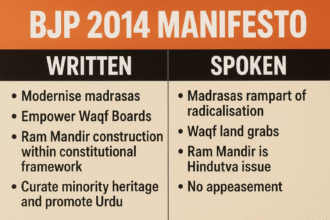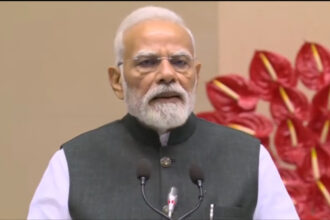A chilling example from Kaushambi district, Uttar Pradesh
In India’s caste‑tinged political landscape, wrongful legal charges are occasionally deployed to discredit or break influential social groups. The recent Kaushambi case lays bare this unsettling trend:
False Complaint as a Political Tool
The village head (Gram Pradhan) orchestrated a fabricated criminal case against a Brahmin household. This began when a minor girl was allegedly persuaded by the family to make misleading accusations, escalating into a series of unfounded claims that snowballed into a legal nightmare for the accused.
(No public evidence supported the charges—but the complaint was filed and publicized anyway).
Family Implodes Under Pressure
The patriarch of the Brahmin household was jailed based on these trumped-up charges. Despite his anguished pleas from behind bars seeking justice, the legal system failed him. Isolated, defamed, and powerless, he eventually died—leaving his family in ruin.
Societal Relief at Their Ruin
Shockingly, segments of the community expressed relief or even celebration at the downfall of this Brahmin family. Their fate somehow been perceived as a social “balance”—a troubling reflection of embedded caste biases seeping into the justice process.
Why Create False Cases?
1. Political & Social Advantage
Levels of influence often shift when a targeted individual or family is discredited. In local politics, even a false charge can justify removal from positions of power or community standing.
2. Caste Dynamics
In some regions, Brahmins still wield economic or social influence. Bringing a Brahmin family to public disgrace is sometimes seen as a victory by those seeking to dismantle entrenched privilege—regardless of the ethics.
3. Judicial Delay & Public Pressure
Courts overwhelmed by cases often yield under persistent public outcry—especially trends captured on social media. Even innocent accused can languish awaiting trial, sometimes for years.
The Human Cost
Disappearances of Evidence & Witnesses
In many such cases, witnesses retract statements, evidence mysteriously disappears, and charges often wither toward acquittal—or, tragically, after irreversible damage has been done.
Mental & Social Breakdown
The accused family in Kaushambi faced financial ruin, social ostracism, and psychological collapse—not to mention a loss of trust in the system.
Precedents of Impunity
No one in the village has been held accountable for filing false charges or for the tragic outcome. This lack of accountability emboldens others to employ the same tactics.
A Call for Justice
This horror story should be more than just a cautionary tale: it demands reforms.
Reform Needed Why It Matters
Fast‑Track Trial Procedure Extended jail time before conviction can destroy innocent lives—accelerated justice would reduce this risk.
Stricter Penalties for False Complaints Stronger deterrence is required—especially when falsified accusations result in serious harm or death.
Caste‑Sensitivity Training in Law Enforcement Police and prosecutors require training to recognize caste-based motives and avoid blindly fueling bias.
Victim Support and Rehabilitation Even after legal vindication, social scars remain. Counseling, financial aid, and social reintegration are essential.
Final Word
The Kaushambi tragedy is not just the story of one family’s destruction—it is a warning. When caste animus combines with political motives and judicial turbulence, the innocent become victims, and justice becomes a casualty.
To prevent such tragedies, India must strengthen accountability for false legal action, speed up legal processes to protect the innocent, and recognize caste biases within law enforcement. Only then can tragedies like Kaushambi be prevented—and justice genuinely served.


.jpg)
